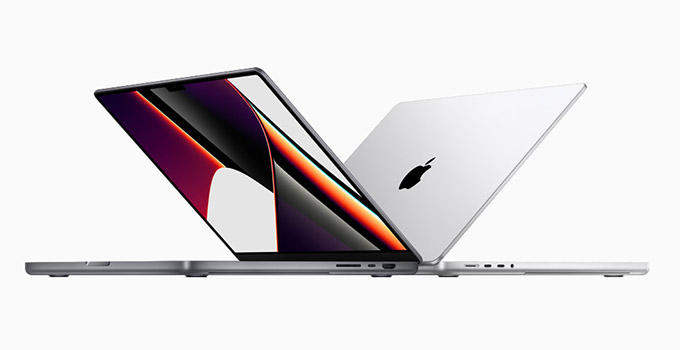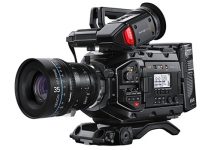Apple has just unveiled the next step in their revamped Mac lineup: the Mac Studio. Slotting in somewhere between the Mac mini and Mac Pro, this new model is benefitted by the introduction the extremely powerful M1 Ultra chip.
Essentially stitching together two M1 Max chips, which have only been seen so far in the highly regarded MacBook Pros, this upgrade provides a serious speed boost.
Curious about just how much more power that new chip provides for video editing? Well, for that you should check out this comparison from YCImaging which pits the new Mac Studio up against a 16” MacBook Pro.
Before we get into any of this we have to lay out the specs of each model.
The 16” MacBook Pro is configured with…
- M1 Max with 32-Core GPU
- 32GB Memory
- 4TB SSD
And the Mac Studio is configured with…
- M1 Ultra with 64-Core GPU
- 128GB Memory
- 4TB SSD
The Mac Studio is essentially providing double the power since the M1 Ultra is quite literally just doubling all the parts of the M1 Max. From a 10-core CPU to 20 cores and a 32-core GPU up to 64 cores.
Then the memory was quadrupled, but that might not be as dramatic a change. And finally, they have the same SSD so you should be seeing some similar performance there.
Obviously there are very different machines. The Mac Studio is very nice and offers a lot more ports than the MacBook Pro. Add on the Studio Display and you have even more ports.

Image Credit: Apple
Getting to testing, he is using some real projects and not just running some basic benchmarks. He is also using a lot of grades and effects in his project that will slow things down a tad. If you have simpler project you will see much improved speeds.
The first project is shot with the GH6 in the 5.7K HEVC codec. This is a tough file with most computers. Then he added on a few effects. These are fairly intense effects with multiple clips stacked on top of each other with animated masks.
And it is playing it back at full quality. With some other effects you are getting some dropped frames, but it is still very usable. It is time to see how the export times compare.
In a very surprising turn of events the MacBook Pro actually exported faster than the Mac Studio. The Studio was 1 hour 4 minutes and the MacBook was 1 hour 1 minute.
Next is a project using XF-AVC with the C70. This has a color grade and some grain but it is not as effects-heavy as the first project. There is one composition in here, but for the most part, it is a bit lighter on the computer. The comp is intense with almost 20 comps that are stacked up to create the effect. It’s a green screen shot combined with masks.
These were very close, though the Mac Studio did it in 4 minutes 5 seconds while the MacBook took 4 minutes 30 seconds.

Image Credit: Apple
Now is time for a project without any effects, also shot with the C70. It has some simple color grading done to get the footage looking good. It’s playing back smooth and even makes it through the few effects with ease.
Export times are 3 minutes 6 seconds for the Mac Studio and 2 minutes 38 seconds for the MacBook. He thinks that Color Finale is actually causing some weirdness by choking up the system. This might need some more optimization with Final Cut and the new processor to actually work as expected.
Moving over to Premiere Pro he also uses a relatively simple project. It runs smoothly with the color grade and various effects. There aren’t any dropped frames with the GH5 footage. Export times clocked in at 4 minutes 23 seconds for the Mac Studio and 7 minutes 15 seconds for the MacBook. That is a significant improvement.
The systems are very optimized for Final Cut and in those scenarios the computers are fairly even. Now, moving over to Premiere you are seeing the extra power is giving the Mac Studio the edge. It’s an interesting thing to see and depending on your software needs you might be able to make a different purchasing decision.
What did you think about these tests? Curious how the MacBook came so close in performance to the Mac Studio?
[source: YCImaging]
Order Links:
Disclaimer: As an Amazon Associate partner and participant in B&H and Adorama Affiliate programmes, we earn a small comission from each purchase made through the affiliate links listed above at no additional cost to you.



